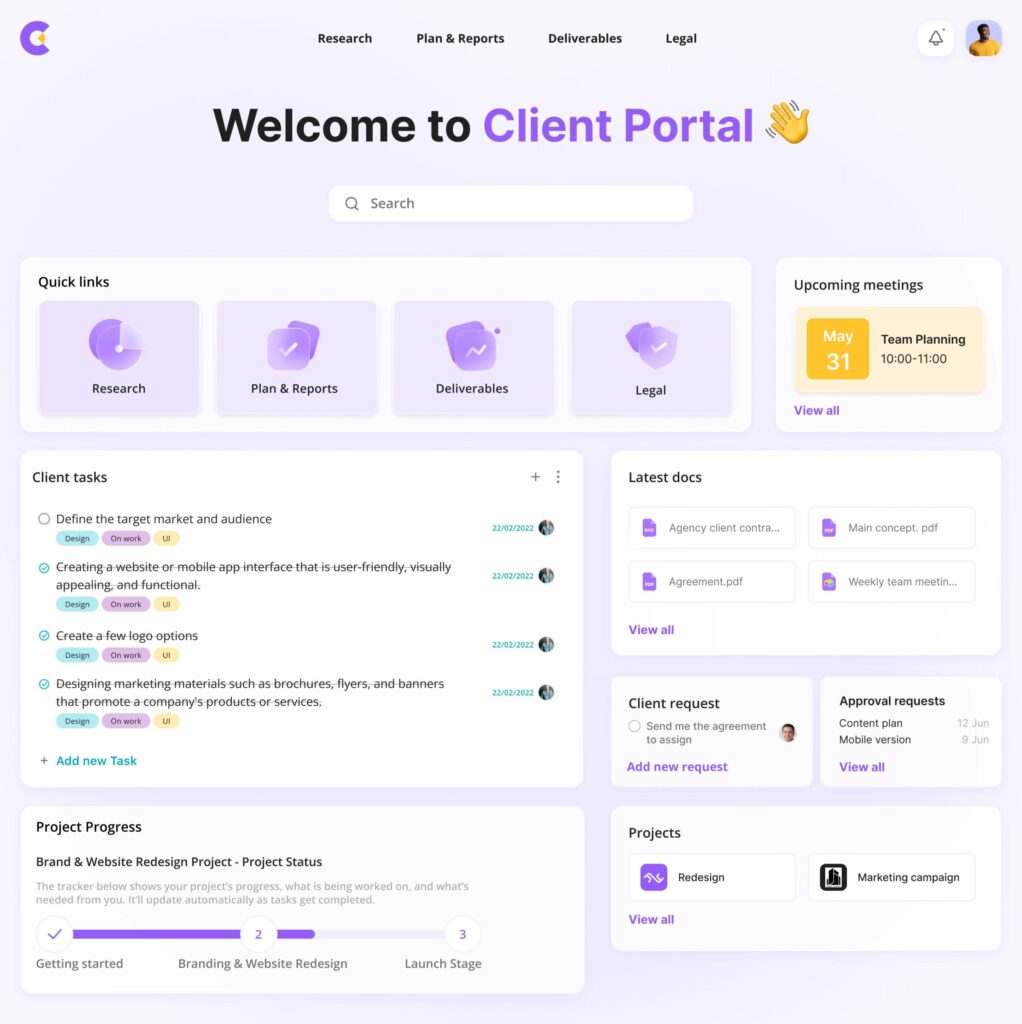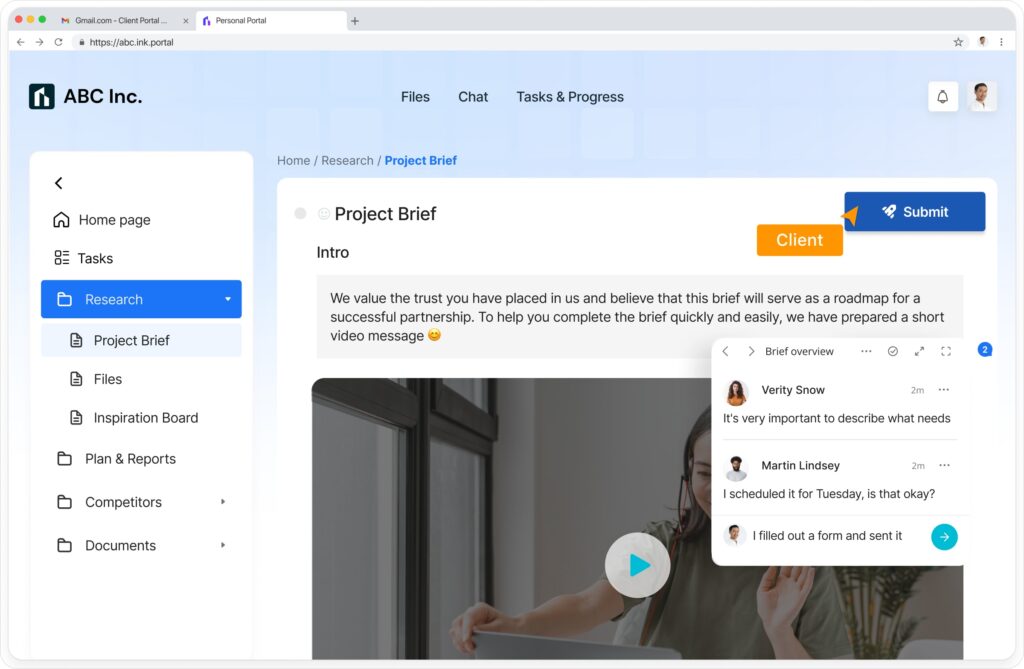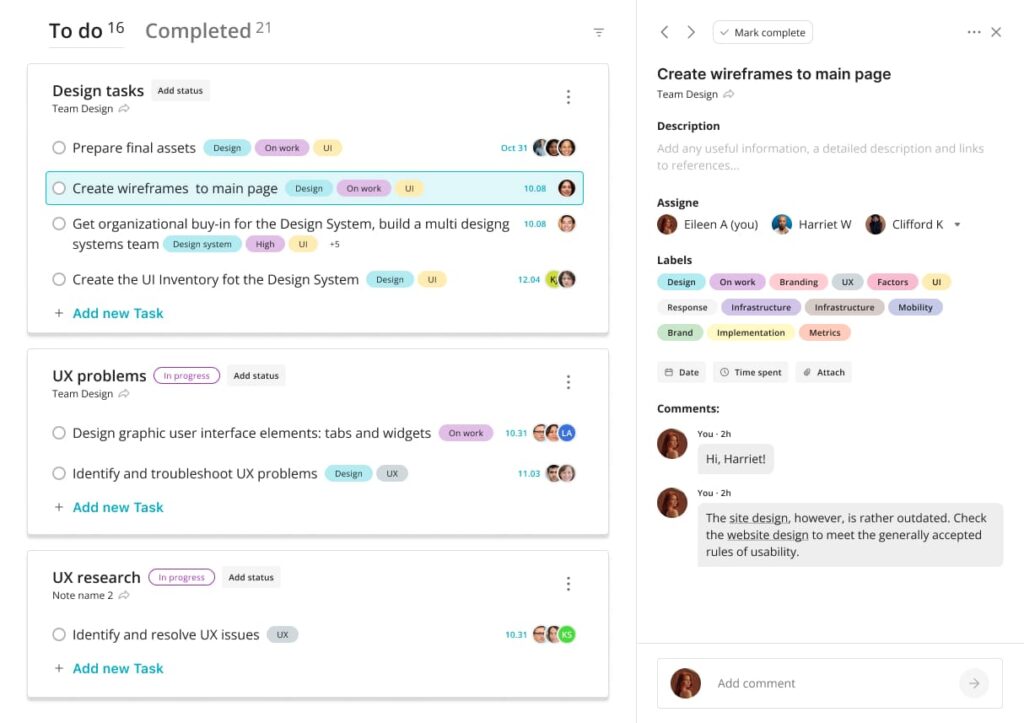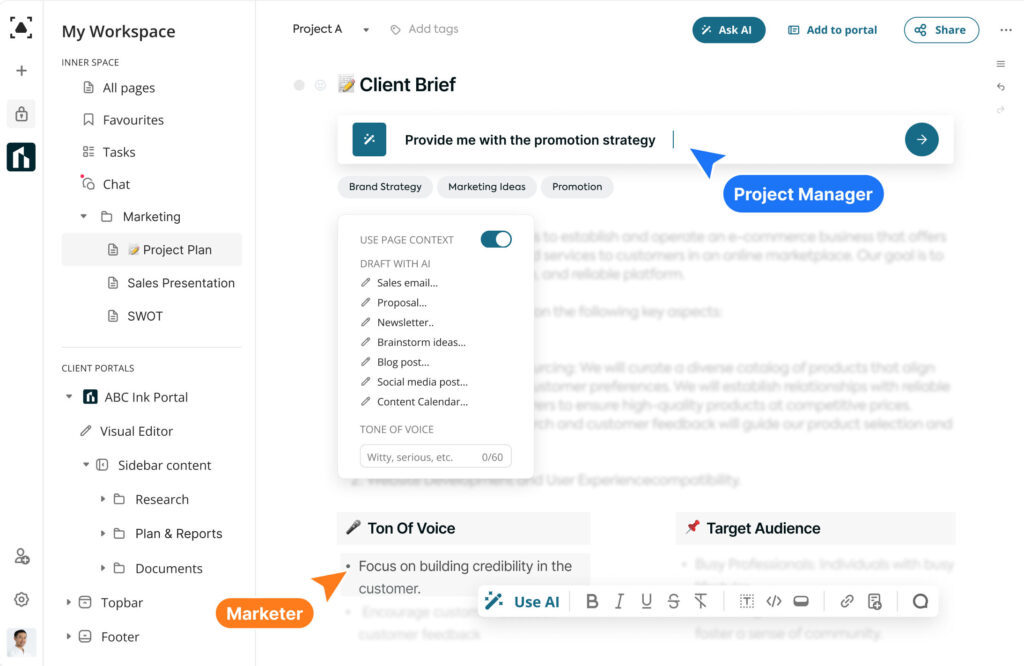
The Ultimate Guide to Finding the Best Customer Education Software
- 11 Min read
Learn from experts how to enhance your client communication with FuseBase!
Book a demoStrong communication skills are among the critical attributes for professionals in any field. Particularly in consulting, transparent and effective client interactions are crucial for success. A consultant should articulate ideas clearly and concisely, practice active listening, show empathy, and have the capacity to tailor messages to diverse audiences.
As a consultant, mastering effective communication is a step you can not skip if you want to build trust and guarantee high customer satisfaction. It is an indispensable part of a consultant’s soft skill set.
This article will explain client communication’s meaning, importance, and impact. We tailored the context to help consulting business owners and individual consultants discover practical ways to bolster client relationships through improved communication.
“Client communication” is an umbrella term for verbal and non-verbal interactions between consultants and their client base to address client expectations, gather client feedback, and maintain healthy business relationships. It is built around a communication strategy designed to provide the client with clear, precise, and purposeful messages.
But does client communication end on exchanging messages and keeping the client informed? Far from it. Effective client communication involves a strategic blend of listening, understanding client needs, setting clear expectations, and delivering consistent value.
Download our free “40 Tips on Client Communication for Consultants” guide
Client communication skills are essential to the consultant’s role. They aid consultants in connecting with clients, understanding their needs better, and working towards culminating in a satisfactory business relationship. A consultant with good client communication skills proficiently manages expectations and ensures the client feels listened to and appreciated.
Critical client communication skills include empathy, assertiveness, patience, flexibility, active listening, and the ability to communicate complex ideas effectively. Besides, understanding client expectations and adapting the communication strategy are equally important skills.
Trust is a valuable asset earned through consistent, deliberate effort, and at the heart of this trust-building process lies the art of effective communication.
Can you recall when unclear communication led to a misunderstanding with a client? The consequences are immediate and often severe when communication falls short of clarity or transparency. Misunderstandings and misinterpretations become commonplace, leading to errors, unmet expectations, and perceived deceit.
Poor client communication can erode trust and damage the business relationship. Inadequate communication can leave the client feeling neglected, creating uncertainty and making them less likely to keep the client relationship going in the long term.
When communication thrives, trust is never far behind. Practical, open, and honest communication is a critical precursor to building and sustaining trust.
Think of clear communication as the foundation of a strong relationship with your clients. Don’t shy away from sharing the status of a project, even if you’ve hit a snag or two. This openness shows integrity and helps establish trust. If a challenge does come up, let your client know immediately and brainstorm solutions together.
Let’s be honest; we all want to sound our best when talking to clients. That’s where tools like FuseBase AI come in handy! It leverages the power of artificial intelligence to make sure your written communication is polished and professional. Think of it as a little extra boost to make your communication top-notch.
Nobody likes feeling like just another number! Clients want services that are tailored to their needs, and personalized communication is the first step in that direction. Taking the time to personalize your messages will strengthen your relationships with clients.
Show that you understand their unique needs and goals – a simple touch like using their name in emails or asking about a recent project they mentioned can make a world of difference.
Have you ever gotten hit with a barrage of emails and felt you had to reply right this second? Your clients might feel the same way. Adopting asynchronous communication (like emails, project updates, or shared documents) gives them the space to respond on their own schedule. It shows you’re considerate of their time and helps manage expectations on both sides.
Do you actively seek feedback from clients on the effectiveness of your communication? Gathering client feedback is essential in understanding their experiences and improving your services and communication processes.
Successful businesses never underestimate the power of customer’s insights, as they often highlight areas for improvement that might not be immediately obvious from an internal perspective. Acting on this feedback is critical in demonstrating your commitment to client satisfaction and trust-building.
Improve your communication skills to boost client satisfaction

FuseBase is a one-of-a-kind, AI-powered client collaboration platform that centralizes communication channels, has real-time project management features, and offers knowledge bases to answer the client’s questions promptly.
As we have already learned, strong communication is the backbone of any thriving business. It builds trust, keeps projects on track, and makes both you and your clients happy. That’s precisely where FuseBase shines. Let’s explore how it helps you connect with your clients and deliver those top-notch experiences they deserve.
FuseBase’s client portals combine various communication channels. They bundle all your communication channels into one organized space so you (and your clients!) never miss a beat. This way, everyone stays in the loop, reducing miscommunication and saving you valuable time.

Moreover, FuseBase’s white-labeled portals seamlessly match your branding, giving your clients a professional, polished experience.
FuseBase knowledge bases are like having an FAQ supercenter all set up for your clients. They get the answers they need when they need them, helping reduce churn and boosting satisfaction.

Knowledge bases address client questions efficiently, providing a self-service resource that reduces response times and improves client satisfaction.
FuseBase lets you and your clients work hand-in-hand throughout the project. Real-time updates, task management, and direct communication all happen in one spot.

By boosting transparency and reducing the risk of miscommunication, FuseBase streamlines the project management process, leading to more successful outcomes and lasting relationships with your clients.
Imagine having an assistant that crafts personalized content and handles your routine tasks. That’s FuseBase AI! Generate top-notch communication, automate scheduling and follow-ups, and more. Heck, you can even get communication tips directly from your AI pal.

FuseBase takes the stress out of client communication while helping you streamline your workflow. The result? Happier clients, smoother projects, and more time for you to focus on building your business.
If you’re looking for more ways to enhance your client communication, various resources can help. Blogs, podcasts, webinars, and ebooks often contain practical advice on improving your client’s communication skills.
Our free eBook is a treasury of insight on solid client communication basics. It features 40 top tips to advance communication skills and foster stronger client relationships.
Level up your client interactions and win more clients with our free tips
Now that you have gathered all these tips and strategies, it’s time to implement them. Make the most of FuseBase’s features and enhance your communication for a better service experience. Remember, every new client is an opportunity to demonstrate good client communication and build stronger, more successful business relationships.
Improving client communication skills requires a conscious effort and consistent practice. Some valuable strategies include enhancing verbal communication abilities, understanding body language, working on active listening, and asking divining questions for clarity. Applying client communication best practices can significantly improve your ability to communicate effectively with clients.
Poor client communication can manifest in various ways, including slow response times, unclear messages, and lack of understanding. Avoiding these pitfalls is essential because poor communication can lead to misunderstandings, disrupted project timelines, and decreased client satisfaction.
One way to improve client communication is by being proactive. This means reaching out to clients before they expect it and providing updates and feedback often. Additionally, you should tailor your communication style to meet the client’s preferences and listen to client feedback to implement necessary improvements.
Effective communication is crucial for building enduring and robust relationships with your clients. Communicating clearly with clients makes them feel valued and understood, fostering trust.
In project management, effective client communication is essential in ensuring all stakeholders are aligned and informed about project progress, changes, and potential concerns.
Found it useful? Share the article with your community
Get weekly tips and insights on how to grow your business